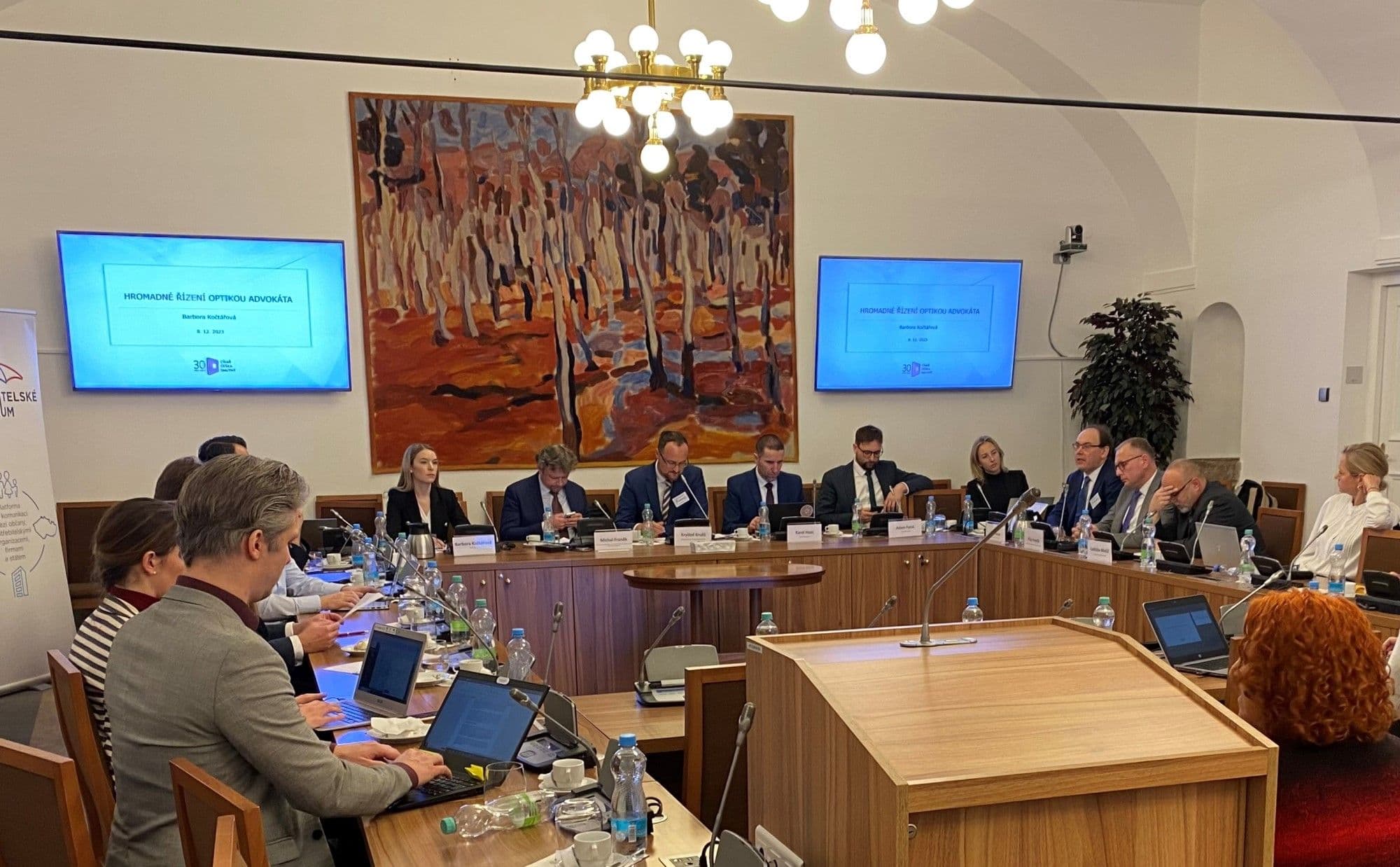Seminar on Class Action Lawsuits at the Chamber of Deputies of the Czech Republic
08 \ 12 \ 2023

The seminar on class action lawsuits at the Chamber of Deputies of the Czech Republic on December 8, 2023, focused primarily on various aspects of the proposed law and its practical impacts. Deputy Karel Haas discussed the risks associated with class actions and their incompatibility with the current civil procedure. He proposed additional measures, such as denying the defendant’s right to appeal during the certification phase and capping legal representative fees.
Attorney Barbora Kočtářová focused in the discussion on the practical aspects of class action lawsuits. She especially emphasized that the proposed legislation still contains several less and several more fundamental issues that should be subjected to further discussion during the legislative process. One key point is the currently proposed possibility of conducting multiple class actions on claims with a similar factual basis against the same entrepreneur. This approach goes against the purpose of class actions, and a possible solution could be the mandatory consolidation of class actions into a single proceeding. Kočtářová also mentioned the need to set a temporal limitation on the retroactive applicability of the law, viewing the most suitable solution as allowing class actions only regarding obligations arising after November 25, 2020 — the date of adoption of the Directive on Representative Actions.
Kočtářová further commented on the proposed regulation of settlement approval in class actions, specifically the possibility for registered consumers to opt out of the effects of an approved settlement. She pointed out that this does not correspond to procedural law and that the risk of consumers opting out reduces the incentive for entrepreneurs to conclude settlements.
In Kočtářová’s presentation, the discussion moved towards practical challenges related to applying new legal norms. Her knowledge of legal practice brought a clear picture of how class actions might affect not only the participants in disputes but also the functioning of judicial and legal mechanisms.
Michal Franěk from the Ministry of Justice underlined the need for effective court proceedings and presented the minimal harmonization of Czech law with the Directive, emphasizing the importance of consumer awareness. Viktor Vodička from the Czech Consumers Association focused on the financing of class actions and the opt-out regime as a potential advantage for consumers.
Jan Šůra from the consumer organization DTest expressed a positive view on the regulation of consumer rights but raised concerns about the absence of an opt-out procedure, financing, and the potential misuse of lawsuits in competitive disputes.
The debate also touched on the timeline and concerns whether there will be enough plaintiffs. Some emphasized the need to consider existing institutions and to minimize risks for entrepreneurs and consumers within class actions.
Legislative expert Jan Slanina focused on the class actions themselves, stressing the need to clearly define certification proceedings and the binding nature of settlements. The seminar brought discussion on many aspects of class actions, with the main topics being financing, lawsuit regimes, and practical impacts on citizens and entrepreneurs



